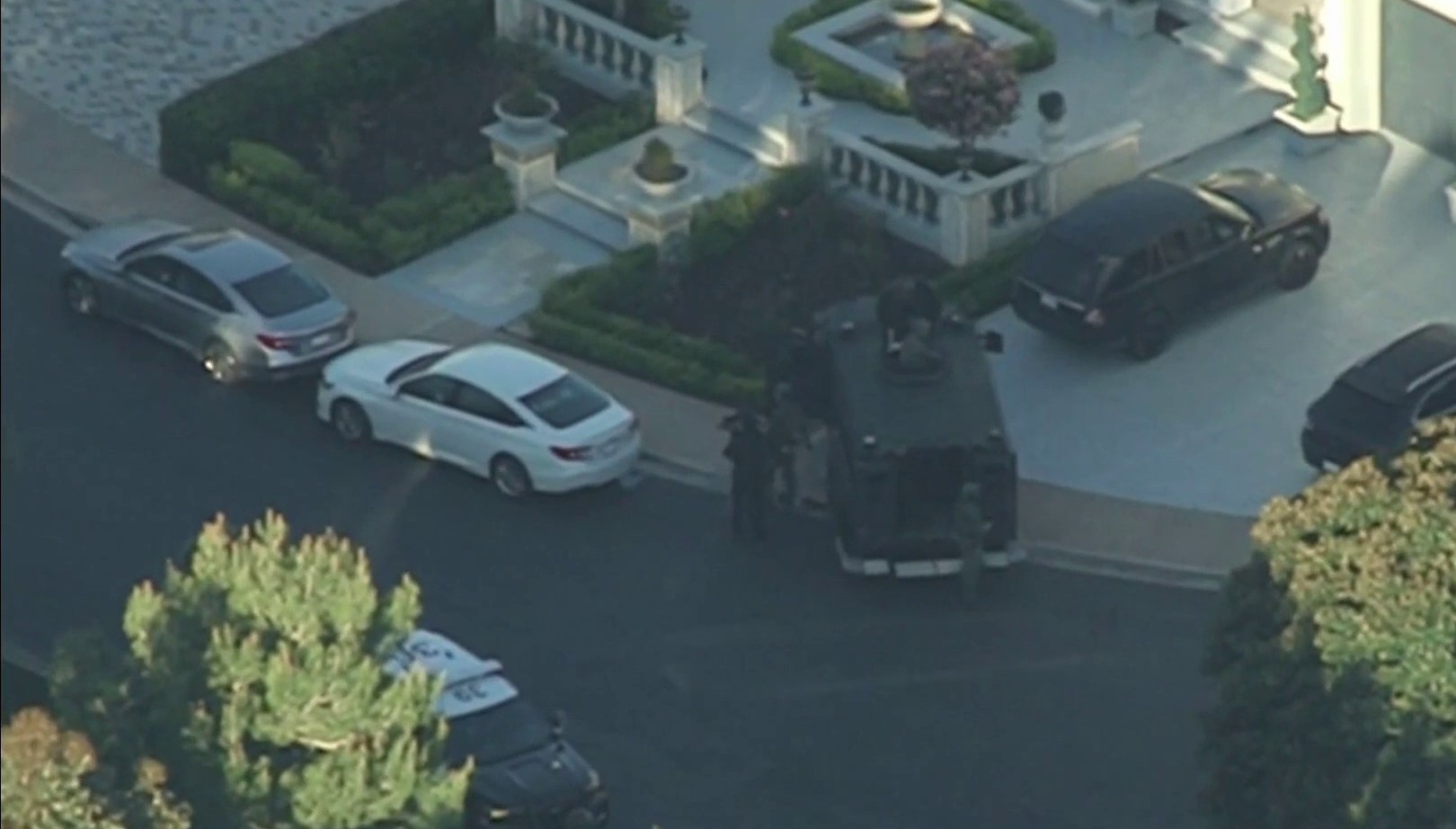A man who ambushed his estranged wife and an off-duty sheriff's deputy and bashed their heads with a 15-pound block of concrete nearly 18 years ago in Norwalk was re-sentenced today to 35 years to life in state prison.
Reuben Kenneth Lujan, now 48, had been serving a life term without the possibility of parole when a federal judge ruled in March 2010 that his conviction should be modified to second-degree murder or that he should be retried for the Aug. 16, 1998, attack on his 26-year-old estranged wife, Monica, and her parents' 45-year-old neighbor, Gilbert Madrigal.
A three-justice panel from the U.S. 9th Circuit Court of Appeals subsequently ruled in October 2013 that "the words used by law enforcement did not reasonably convey to (Lujan) that he had the right to speak with an attorney present at all times -- before and during his custodial interrogations" -- in the last of which he confessed to the attack.
The federal appellate court panel ruled that it would be up to the trial court "to make an independent determination as to whether the convictions can be modified under state law."
Deputy District Attorney Mary Murray -- who announced that the prosecution was not seeking to try Lujan again for first-degree murder -- told Los Angeles Superior Court Judge Larry Paul Fidler the record "fully supports" two counts of second-degree murder against Lujan.
The judge agreed to the prosecutor's request to modify Lujan's conviction to second-degree murder. Lujan's terms for each of the killings, along with his conviction for stalking his estranged wife, were ordered to be served consecutively, rather than concurrently as defense attorney Joel R. Isaacson had asked.
"First of all, it was a terrible crime," the judge said, noting that Lujan had "terrorized" his estranged wife and then killed her and an off-duty law enforcement officer in a crime that involved "great violence."
Local
Get Los Angeles's latest local news on crime, entertainment, weather, schools, COVID, cost of living and more. Here's your go-to source for today's LA news.
He snuck up and surprised two victims who were "vulnerable," Fidler said.
Madrigal was apparently walking Monica Lujan back to her parents' home two doors down from his residence when the two were attacked by her estranged husband, who had pulled a concrete water meter cover out of the ground.
Lujan's wife, who had filed for divorce about two weeks earlier, died at the scene. Madrigal died after six days in a coma. Outside court after the judge's ruling, Lujan's attorney said, "I'm not surprised. I'm disappointed, but we were prepared for this result. It's certainly better than it was, but not as good as it's going to be."
Isaacson said the case will again be appealed as a result of the defense's contention that jurors should be able to decide "whether it's manslaughter or not."
The trial court judge -- James M. Ideman -- had refused to instruct jurors on the lesser offense of voluntary manslaughter. In a 2001 ruling that upheld Lujan's conviction, a three-justice panel from California's 2nd District Court of Appeal rejected the defense's contention that the trial court erred in refusing to give jurors the option of considering manslaughter along with murder.
"Ms. Lujan and Deputy Madrigal did nothing to provoke defendant so as to permit heat of passion instructions to be given," the panel found.
In the same ruling, the state appellate court justices ruled that an "off-hand discussion concerning the unavailability of appointed counsel on a Sunday evening did not comply with the Miranda requirement that the warning reasonably convey the right to have counsel before and during in custody questioning."
But the panel rejected the defense's argument that Lujan's conviction should be overturned because he had testified only because jurors were allowed to hear about his jailhouse confession.
In January 2002, the California Supreme Court rejected the defense's petition seeking its review of the case. That decision prompted Lujan's appeal in federal court. Lujan was convicted in February 2000 of two counts of first-degree murder, with jurors finding true the special circumstance allegations of lying in wait and multiple murders.
The jury was the second to consider the case. Another panel had deadlocked a year earlier on whether Lujan was guilty of first- or second- degree murder, but convicted him of stalking his estranged wife, with whom he had two sons.



